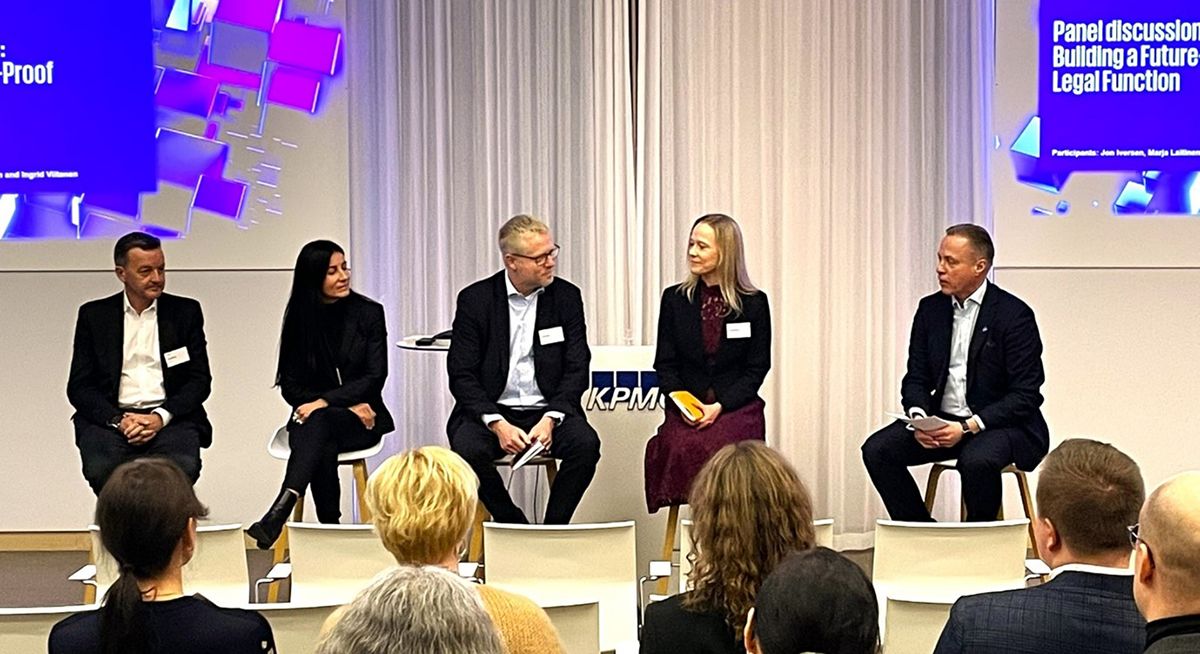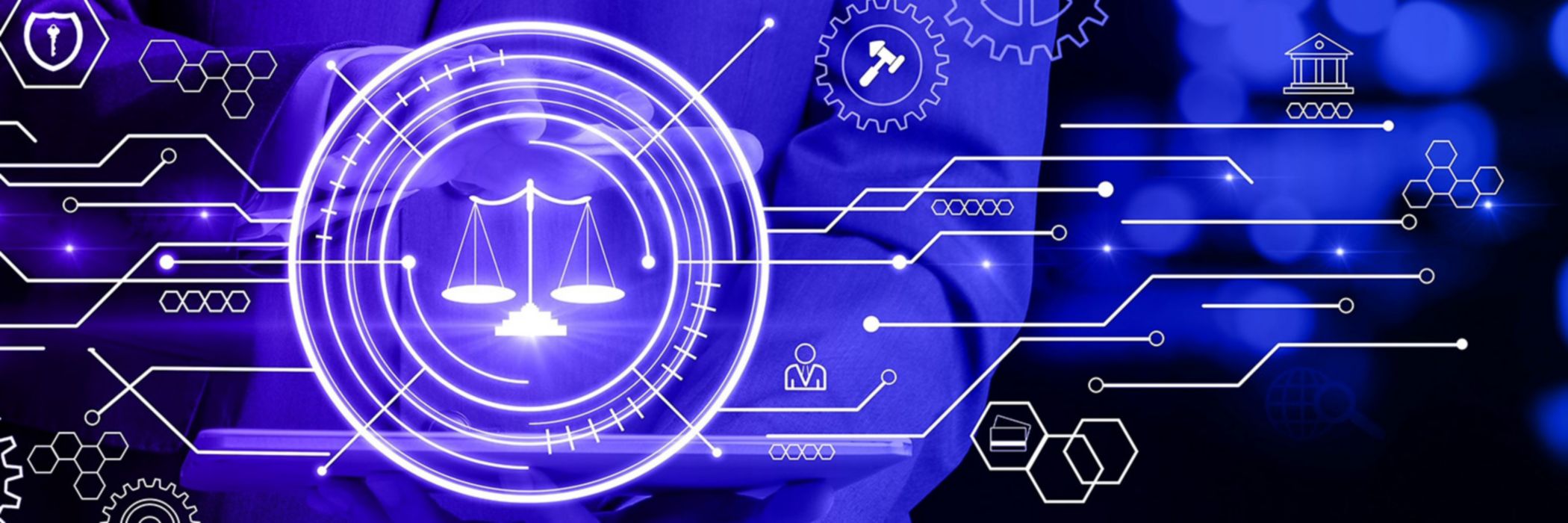This is a newsletter issued by the KPMG Legal Reimagined Nordic and Baltic Group, a collaborative initiative since 2021 with the aim to revolutionize the legal landscape within our region.
Sign up for KPMG Legal Reimagined Nordic and Baltic’s Newsletter to make sure you will be the first to receive coming newsletters and invitations to our events and seminars.
On March 21, we gathered legal leaders and other inhouse legal representatives for the annual KPMG Nordic & Baltic Summit – The New Era of Legal, this year arranged in Helsinki, Finland. The event theme was Exploring AI’s Impact on the Legal Function. The topics discussed during the day covered artificial intelligence and its opportunities and challenges within the legal industry, responsible AI practices, legal design, change management and the transformation journey of the legal function.
One of the key takeaways’ from the event and discussions was the recognition that true innovation goes beyond technological advancements. From harnessing the power of AI to optimizing legal processes to fostering responsible AI practices that uphold ethics and transparency, our discussions covered multiple angles of innovation in the legal profession. To continue on the theme of the event, we asked a generative AI tool to assist with the summarizing of some further key insights of the day:
1. Strategic transformation and increase of legal tech
Transformation in the legal industry is not just about incremental improvement but requires significant changes that fundamentally alter the status quo. This involves adopting new approaches and core beliefs and behaviors, with generative AI playing a key role. The race to disrupt the profession will be won by the ones who can invest and have access to both source materials and end results as well as training materials.
2. The Rise of Legal AI and its use cases
Generative AI offers the potential to automate and streamline processes, identify legal risks, improve client experiences, and ultimately create more efficient legal operations. Generative AI can perform core roles of lawyers such as crafting and evaluating the written word, analyzing contract risks, drafting legal documents, responding to legal queries, summarizing case studies, and comparing contract terms, among other tasks.
3. Data will be a driver but also a high-risk area
Implementing suitable data and knowledge management strategies is key to enhance Generative AI model outputs. This will not only ensure the accuracy and efficiency of AI systems but also contribute to more effective and streamlined business processes.
With the advent of general-purpose AI, corporate data policies need to be reevaluated as AI can access data and document sources at depth. Document content, not just type, needs to be considered in data classification.
4. Trusted & responsible AI should always be top of mind, where risk shouldn’t stop legal transformation
Despite its potential, generative AI presents challenges such as the black box problem, intellectual property issues, and other responsible AI issues. Legal departments implementing generative AI should assess all potential risk and develop mitigation strategies for those risk. Despite potential risks, emphasis was put on the need for transformation in the legal sector to manage evolving regulatory landscapes, take a more strategic & value-focused view on risks, and navigate the new volatile, uncertain, complex, and ambiguous (VUCA) world.
Companies who do not transform and identify ways to leverage Gen AI will be left behind compared to their competitors. They will lose on the talent wars, client trust, fall short of peers, and people will burn out trying to compete with more advance companies.
5. Design with legal in mind
It’s important to consider design thinking to make legal products, services, and processes user-friendly and understandable. This includes redesigning contracts to facilitate trade and relationships and crafting legal communication that is accessible.

Panel discussion regarding building a future legal function with Stuart Fuller (KPMG), Marja Laitinen (Microsoft), Jon Iversen (Energinet), Ingrid Viitanen (Nokia), moderated by Mikko Harju (KPMG)
We hope that this serves as a source of inspiration for inhouse legal professionals and leaders and are looking forward to continuing discussions with you on these topics. Our KPMG experts are here to assist you on your transformation journey, whether you are interested in for example a legal function assessment to pinpoint your current state, need assistance in strategic planning, defining new work flows or selecting the most appropriate tools and solutions, including exploring generative AI.
To continue the story of the New Era of Legal, next year we will be inviting you to join us in Oslo, Norway. Stay tuned for more information!
Please sign up for our newsletters to make sure you will be the first to receive coming newsletters and invitations to our events and seminars.
Contacts

Victoria Swedjemark
Director
KPMG Law Sweden
victoria.swedjemark@kpmg.se

Josefin Gustavsson
Manager
KPMG Law Sweden
josefin.gustavsson@kpmg.se

Ari Engblom
Partner
KPMG Law Finland
ari.engblom@kpmg.fi

Lena Ernlund Malmberg
Director
KPMG Advisory Denmark
lemalmberg@kpmg.com

Ævar Hrafn Ingólfsson
Senior Manager
KPMG Law Iceland
aehingolfsson@kpmg.is

Ieva Tillere-Tilnere
Partner
KPMG Law Latvia
itillere@kpmg.com

Gediminas Lisaukas
Partner
KPMG Law Lithuania
gediminas.lisauskas@kpmglaw.lt

Tor Henning Rustan Knudsen
Partner
KPMG Law Norway
tor.knudsen@kpmg.no

Urmas Kukk
Manager
KPMG Law Estonia
urmas.kukk@kpmglaw.ee

